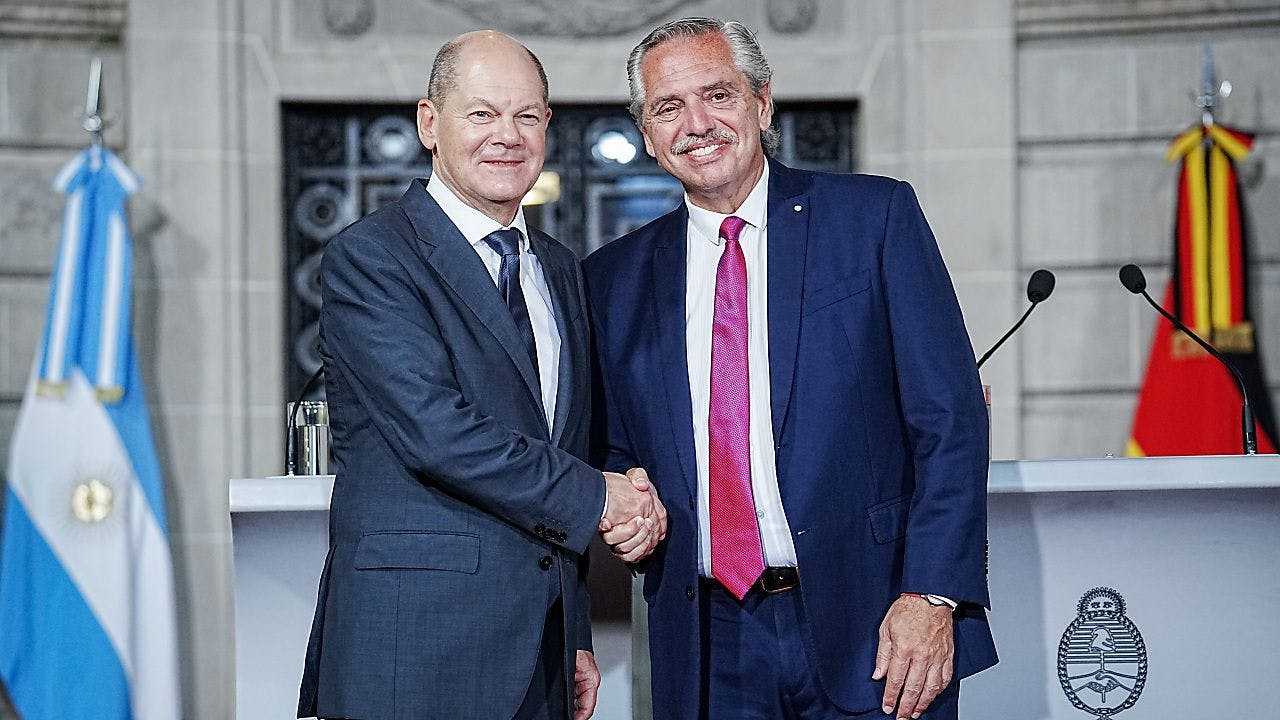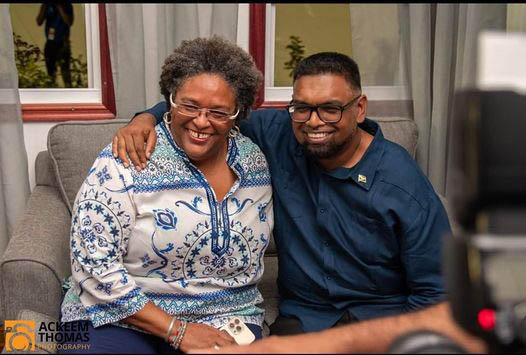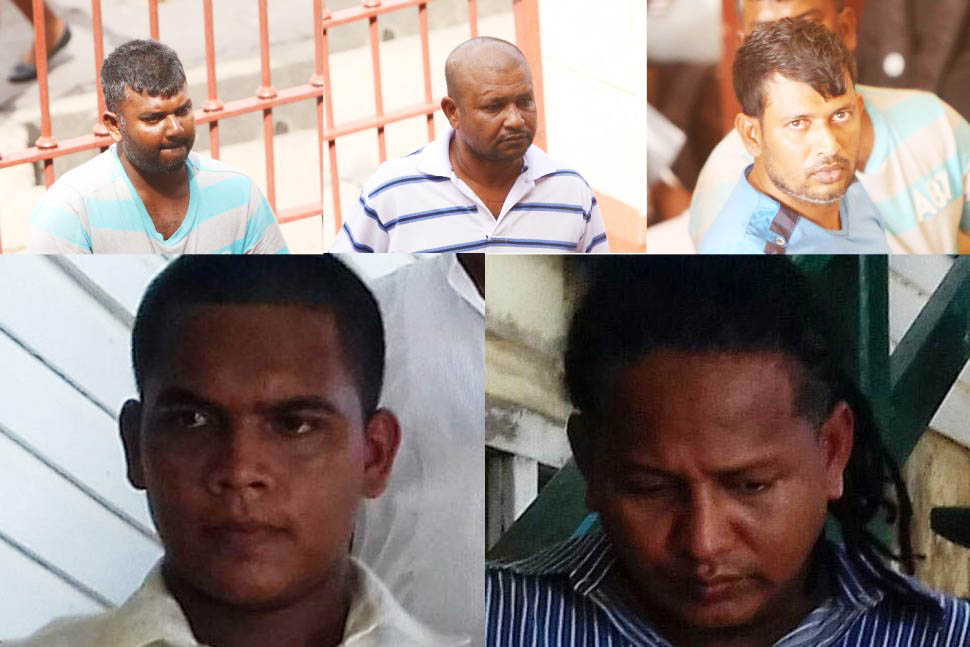EU observer mission lists six priorities including clear campaign rules to avoid undue advantage of incumbency
Restating its preliminary view that there was an unlevel playing field at the September 1st General Elections that favoured the incumbent, the European Union Election Observer Mission today presented its final report and listed six priority recommendations including clear and comprehensive campaign rules.
The six recommendations follow:
1. Enhance the prospects for key electoral reforms through necessary electoral expertise as part of a robust Constitutional Reform Commission operational framework.
2. Update the voter list in light of most recent available population data, and data from all relevant state institution, ensuring linking to ongoing digitalisation solutions.
3. Adopt clear and comprehensive campaign rules, including for the conduct of public officials and for the use of all types of state assets to avoid undue advantage of incumbency.
4. Strengthen the operational oversight for campaign finance through an independent oversight body and revising outdated legal provisions, including expenditure ceilings and permissible expenses.
5. Establish media campaign coverage rules on equitable airtime and space for electoral contestants as well as political advertising, in a timely and consultative manner.
6. Implement the Data Protection Act and establish a publicly accountable Data Protection office, thus effectively protect voters’ personal data from undue publication and from misuse for political gains.
The executive summary to the report follows:
I. EXECUTIVE SUMMARY
The 2025 general and regional elections in Guyana were peaceful and well-run, with Election Day and tabulation processes administered efficiently and voters able to cast their ballots in an orderly environment. The polls, however, unfolded in a context of deep political polarisation and mistrust lingering from the 2020 elections, alongside high expectations linked to growing oil revenues. Six political parties contested, with new movements challenging the established historical two-party dominance. The legal framework is broadly adequate. Despite some positive recent reforms, persistent gaps remain in party regulation, campaign finance, and the media environment. GECOM managed operations effectively. Its politicised structure, however, undermined trust in the process among the opposition parties. Campaigning was generally calm but marked by confrontational rhetoric, instances of unequal access, and allegations of pressure on civil servants. The undue advantage of the ruling party, misuse of state resources, partisan media coverage, and unregulated campaign finance distorted the level playing field.
Six political parties contested, including the long-established People’s Progressive Party/Civic (PPP/C) and A Partnership for National Unity (APNU), traditionally aligned respectively with Indo-Guyanese and Afro-Guyanese communities, the Alliance for Change (AFC), and three new movements founded in 2025: Forward Guyana Movement (FGM), Assembly for Liberty and Prosperity (ALP), and We Invest in Nationhood (WIN). Indigenous peoples were viewed as a pivotal constituency, while WIN emerged as a notable challenger to the two-party dominance by positioning successfully itself as an alternative beyond ethnic lines.
The legal framework provides an adequate basis for conducting key stages of democratic elections, including candidate nomination, voting, counting, and tabulation. It is rooted in the Constitution and supported by core electoral laws, most notably the Representation of the People Act (RoPA) and the National Registration Act, both amended in 2022. The reforms, tested for the first time in the 2025 elections, included new key transparency measures, including real-time on-line publication of polling station results protocols, Statements of Poll (SoP), on receipt by designated returning officers, marking a significant legal improvement for the traceability of results. Despite these changes, a number of ambiguities and issues remain to be addressed in areas relating to the regulation of political parties, financial accountability, and the media environment. International obligations, including UN and regional treaties, are formally recognised but some remain only partially operationalised in domestic law, leaving gaps in the protection of rights and transparency. The Constitutional Reform Commission was formed in 2024 to consult on the review, among other matters, the legal framework but it has yet to begin its work.
The Guyana Elections Commission’s (GECOM) structure and decision-making remain heavily influenced by political divisions. Commission members often expressed conflicting stances about the election process, publicly compromising an already reduced trust in the institution. The current composition of GECOM, appointed between 2007 and 2022, represents a fixed tenure that does not reflect the changing configuration of the National Assembly. The GECOM Secretariat managed the elections efficiently. However, GECOM’s public communication was inconsistent; there was insufficient direct engagement with the public and media, leaving space for uncertainty and misinformation to spread.
The final voter list contained a total of 757,690 registered voters, including those living abroad and Commonwealth citizens residing in Guyana. Opposition parties questioned the accuracy of the voter list, claiming it was inflated. Combined with the absence of reliable population data, this fuelled a narrative of potential voter list manipulation in the elections. Prisoners and non-convicted detainees cannot vote although there are no legal restrictions (with limited exceptions). In practice, the lack of specific rules and practical arrangements for voting in places of detention results in the disenfranchisement of this category of voters.
In an inclusive and timely candidate registration process, GECOM approved six political parties to contest, all of which complied with the legal requirements, including having one third women candidates and competing in at least six of the ten regions. The People’s Progressive Party/Civic (PPP/C), A Partnership for National Unity (APNU), We Invest in Nationhood (WIN) and Alliance for Change (AFC) contested all ten geographical constituencies while Forward Guyana Movement (FGM) ran in seven, and Assembly for Liberty and Prosperity (ALP) in six. In total, 2,424 candidates contested the general and regional elections. For the National Assembly, 771 candidates (50 per cent women) competed for 65 seats.
The campaign was largely peaceful with no major incidents, yet increasingly confrontational rhetoric involving PPP/C, WIN, and APNU representatives was observed closer to Election Day. Part of this rhetoric was linked to the reported use of US sanctions against WIN Presidential candidate Azruddin Mohamed to impose no-fly restrictions and to close his bank accounts. Banks extended account closures to over 70 WIN members, including candidates, in a process criticised for lack of transparency by various stakeholders. Most candidates were able to campaign freely. The EU EOM received reports from opposition political parties alleging they had been unfairly denied the use of public venues in a few instances and that they had been hindered to campaign in some Indigenous villages. Cases of direct pressure on civil servants and part-time governmental employees were also reported, with instances of demotions or transfers based on support for WIN candidates.
An undue advantage of incumbency distorted the level playing field during the election campaign. The President and his administration inaugurated a high number of public projects (hospitals, schools, roads and bridges), at the same time, the state media and government-run social media accounts were instrumentalised to amplify campaign messages, further blurring the line between state and party. New or expanded social programmes were launched in the pre-election period, while beneficiaries of government cash grants reported receiving unsolicited calls encouraging them to support the ruling party, raising concerns over misuse of personal data.
Campaign finance is under-regulated, resulting in a lack of transparency and accountability. Although RoPA sets expenditure ceilings for candidate lists and mandates detailed reporting of expenses, the current limit is outdated and unrealistic, and permissible expenditures are narrowly defined. Sanctions exist for violations, yet in practice with little effective enforcement. The legal framework does not address the use of social media or digital campaigning, leaving space for significant spending by parties and third parties. There are also no provisions on permissible sources of funding, donations, foreign contributions, third-party spending, or online advertising. Political parties frequently fail to report as required, while GECOM lacks the capacity to oversee compliance.
The media environment in Guyana is vibrant but highly polarised, with state-run and most private outlets strongly favouring the ruling PPP/C, limiting voters’ access to balanced information. While a few independent media maintained impartial coverage, overall reporting was shaped by partisanship, confrontational relations with political actors, and occasional threats or legal pressure on journalists. State funded broadcasts largely excluded opposition voices, and campaign coverage is not subject to any media regulation, leaving contestants without guarantees of balanced and equitable access. Independent broadcasters and print outlets provided more balanced coverage, yet the absence of effective safeguards and the overlap between government communication and campaign activities further constrained pluralistic and objective reporting.
The digital information environment was vigorous and antagonistic, marred by manipulative content, leaving little space for a respectful and pluralistic debate. Political discourse on Facebook and TikTok was driven by a small number of influencers and digital media, many of whom showed close alignment with the PPP/C, WIN or APNU. Legal gaps enabled misuse of some voters’ private data for political gains. Encouragingly, a few popular digital media and personal pages offered a nonpartisan view on the elections, helping voters to make an informed choice.
Guyana’s legal framework supports women’s political participation through special measures, resulting in strong representation in the 2025 elections, with 43 per cent of national Top-up and 51 per cent of Regional Democratic Councils (RDC) candidates being women, including two presidential contenders. Women played a crucial role and were active across campaigns, GECOM leadership, and public life, reflecting progress that placed Guyana 31st globally for women in parliament in 2024. However, gaps remain in ensuring party transparency on gender equality, while online abuse targeting women politicians and activists underscored the need for stronger protections against gender-based on-line harassment in the electoral process.
Indigenous peoples, estimated at 10–15 per cent of the population, remain an important electorate with established local governance systems and involvement in national politics, though their participation faces challenges of remoteness, limited access to information, and socio-economic dependency on government subsidies. Community leaders (Toshaos) often contributed positively to inclusive campaigning. In other instances, however, reports indicated that opposition parties faced restricted access to villages under the Amerindian Act, compared to the ruling party. Indigenous representation following the 2025 results comprised six National Assembly members with one cabinet appointee.
Persons with disabilities in Guyana continue to face significant barriers to equal electoral participation, as the legislative framework lacks effective enforcement. Representative organisations highlighted low compliance with accessibility standards, noting that recommendations for ramps and tactile ballots were not implemented before Election Day. While the law foresees options such as proxy voting or voting with an assistant, some stakeholders expressed concerns about insufficiently targeted information on their use. EU EOM observed on Election Day some 59 per cent of the Polling Stations (PS) did not provide independent access for persons with reduced mobility and 32 per cent of PS had unsuitable layouts for these voters.
The accreditation process for observers was efficient. GECOM accredited 12 domestic observer organisations primarily from the private sector and five international observer missions. Most prominent domestic observers were professional bodies and interest groups, there were no civil society groups observing these elections. The legal framework does not provide for the same guarantees of access for national as for international election observers.
Overall, Election Day was assessed as peaceful and calm, with the voting and counting efficiently administered. All polling staff were present and performed professionally, with women comprising 87 per cent of staff and 81 per cent of presiding officers. Party agents from PPP/C, APNU and WIN were present in all observed polling stations, enhancing transparency, while local observers were seen in only 17 per cent. Campaign activities were noted near six per cent of polling stations. The opening was evaluated positively by EU EOM observers, with most polling stations opening on time and procedures followed correctly. Voting, procedures were generally respected, with polling staff explaining the process to voters in 93 per cent of observations, though rules on the use of mobile phones were inconsistently applied and secrecy of the vote was not always safeguarded.
GECOM announced the final results of the 2025 general and regional elections, with the PPP/C securing 55 per cent of the vote, 36 National Assembly seats, and the re-election of President Irfaan Ali. The newly formed WIN movement emerged as the main opposition with 16 seats, while APNU registered its weakest performance to date with 12 seats; FGM gained one seat, and the other two contesting parties failed to secure representation. The regional results closely mirrored the national outcome, with PPP/C winning majorities in six of the ten RDCs, APNU losing ground in traditional strongholds, and WIN taking control of Regions 7 and 10.



